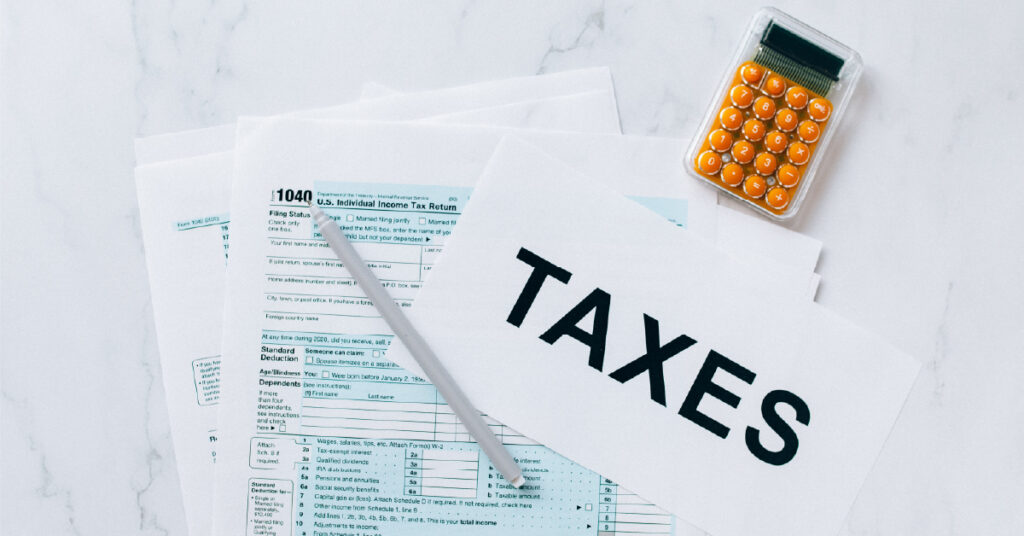Impending 9% GST Hike: How To Prepare Your Business
From 1st January 2024, the new goods & services tax (GST) 9% rate is set to take effect. According to an article published by the Inland Revenue Authority of Singapore (IRAS), the Singapore government aims to fund increased healthcare expenditure and provide increased support for our aging population through the increased revenue generated from the GST hike.
The impending Singapore GST hike poses another challenge to be managed in the ever-evolving business landscape. By practicing strategic planning and readying your business through early preparatory checks and financial reviews, your business is more likely to survive the impacts of the increase in goods and services tax and succeed. Unfortunate instances such as miscommunications with customers and charging of incorrect GST rates can be prevented as well.
Therefore, it is crucial that your business is ready for the change to ensure a smooth transition and curb any potential issues. It is not too late to start preparing your business against unintended and unwanted consequences, follow the tips below to find out how to be ready to deal with the Singapore GST hike.

Voluntary GST Registration
GST is a consumption tax charged on the import of goods and nearly all supplies of goods and services in Singapore. According to the Goods and Services Tax Act, Your business is required to undergo compulsory Singapore GST registration when your taxable turnover exceeds $1 million.
However, even if your business does not meet this requirement, you may still be burdened by additional costs charged by your GST registered suppliers or vendors due to the rise in goods and services tax. Your business will have to decide whether to absorb the increased costs or opt for voluntary GST registration, which functions like tax relief and recoups the additional costs incurred. This registration can be done on the ACRA BizFile website. To explore this option further, check out the annex at the end of this article to see if your business meets the requirements and conditions of voluntary GST registration.
Moreover, you may want to consider the factors below as well to weigh the benefits and costs carefully before proceeding with the Singapore GST registration.
Some benefits that goods and services tax registration may bring are:
- If your business’ taxable turnover hovers just below the threshold, you will no longer need to constantly monitor to ensure that timely GST registration is made once the threshold is passed.
- If your business involves exporting goods or providing services to overseas customers, you will enjoy goods and services tax relief for your purchases since the supplies qualify for zero-rating (i.e. charge GST at 0%).
- If your supplier is a GST registered company, you will also benefit from being able to claim tax relief for your purchases and need not increase your price to maintain the same level of profits.
On the other hand, the following cons should also be evaluated:
- GST registration will essentially pass on the additional costs to your customers if they are not GST registered since maintaining the same price will only cause a decrease in profits. Hence, an increase in your prices will be necessary to maintain the same profit. This might significantly impact your revenue as these customers may choose to liaise with other suppliers that are not GST registered companies instead for cheaper alternatives. A simple GST registration check on the IRAS search portal can show customers if a business is a GST registered company.
- Your business may incur additional administrative or business expenses to fulfill the responsibilities of being a GST registered company, not to mention taking the time to ensure compliance with these responsibilities.
After taking these factors into consideration, if your business decides against GST voluntary registration but requires additional capital to bear the additional costs to remain competitive in the market, you may consider applying for Payd with Poss as an alternative solution to ease your cash flow.
Update GST Rate In Business Systems
Updating business systems for the new Singapore GST rate, effective from 1st January 2024, is an essential first step if you are a GST registered company. Thorough checks and adjustments to the existing Singapore GST rate should be made on accounting and invoicing systems. If your business utilises POS systems, updates will also need to be made to those devices. Contracts with suppliers, vendors, and partners should be reviewed and revised accordingly as well.
IRAS may impose penalties on your business if you fail to account for GST at the correct rate which may prove to be costly and pose reputational risks. Customers may lose trust in your business while the business and compliance costs of your business may increase significantly.
Hence, performing these updates in advance can help prevent disruptions to operating and financial processes and help to ensure accurate reporting of compliance.

Communicate Price Increases Clearly
Your customers will be just as affected by the GST hike as your business, thus it is critical to inform them of the change in prices in a transparent and timely manner. Displaying the revised GST-inclusive prices and explaining the reasons behind the increase must be done to adhere to IRAS guidelines.
Directly attributing unjustified price increases to the rise in goods and services tax might subject your business to investigations by the Committee Against Profiteering. Hence, businesses must be transparent and clear on the rationale for price increases and should not mislead customers.
Familiarise Staff Before The GST Hike
Proper training should be provided to ensure staff are adequately trained on proper documentation procedures to ensure compliance and avoid costly errors. More importantly, staff should be aware of how the GST hike affects the prices of goods or services provided and trained to apply the increase in different scenarios and to different supplies before the transition to the new GST 9% rate takes place.
For example, for goods delivered before 1st January 2024 and payment being made in parts, payment made before the rise in goods and services tax will be subjected to the prevailing rate of 8%. Payments made after the GST hike will be charged at 9% instead.
For more insights on the Singapore GST hike and more information on the transitional rules for supplies, you can check out the specially tailored guide for GST registered companies issued by IRAS for more help.
Review Business Financials
Conducting a detailed analysis of your business’s current financial position facilitates an overall understanding of aspects such as cash flow projections. This helps to identify potential areas of impact due to the increased GST 9% rate so that you can make resource or financial adjustments to your business more efficiently. For instance, as supply costs for F&B businesses increase, sourcing for cheaper alternatives can help reduce your operating and business expenses.
Preparing accurate financial statements is a good way to keep track of business transactions and provides a comprehensive view of your business. It allows you to determine the exact amount of cash flow your business has at any point in time which greatly helps in making informed decisions that ensure the sustainability of your business. For more information on the benefits of financial statements, you can check out our previous article.

GST Hike And Rising Costs Of Living
By following these tips, your business should be better equipped to deal with the increase in goods and services tax. However, many businesses may still fear the burden of the GST hike and the rising costs on their finances. Luckily we are here to help. Poss provides Singapore SMEs with business loans with no early prepayment penalties and transparent fees. Check out our handy loan calculator to determine how much you have to pay each month for each interest rate today! Feel free to fill up the contact form and let us reach out to you to help you cope with the increasing financial demands on your business.
Annex: Requirements And Conditions For Voluntary Singapore GST Registration
Your business qualifies for voluntary GST registration if it meets any of the following requirements:
- Your business produces taxable supplies;
- The goods sold by your business do not enter Singapore throughout the sale process (i.e. out-of-scope supplies);
- Your business makes exempt supplies of financial services that are also international services; or
- Your business procures services internationally or imports low-value goods but may not be eligible for full input tax credit even if you were GST registered.
The following conditions must also be fulfilled even if you meet any of the above requirements:
Prior to GST registration
- Complete and pass the “Overview of GST” e-learning course;
- Facilitate goods and services tax relief and/or repayment process by setting up your GIRO account; and
- Provide the guarantee, if requested to do so.
After GST registration
- Remain GST-registered for at least 2 years;
- Maintain the GIRO account made ;
- Make taxable supplies within 2 years if your business has not already done so at the point of applying for GST registration;
- Adhere fully to the responsibilities of GST registered businesses; and
- Any other conditions that IRAS may impose at any time during registration.
You may refer to the IRAS website for the full list of responsibilities required of your business should you become a GST registered company. You can apply for voluntary GST registration on the ACRA BizFile website here.